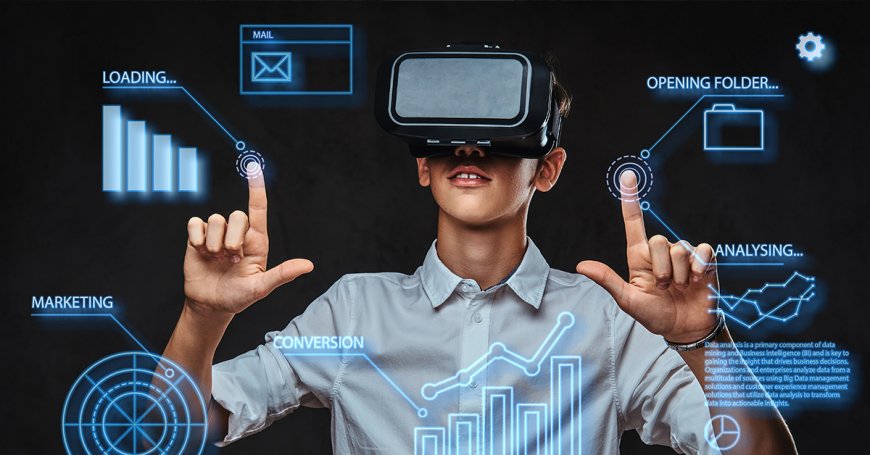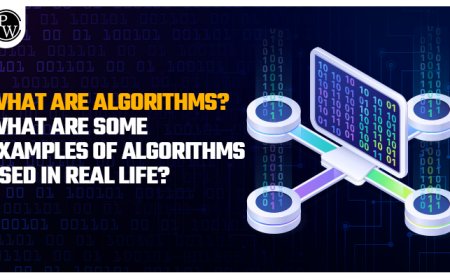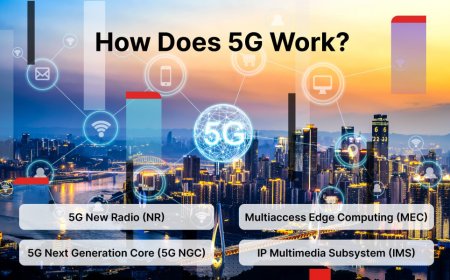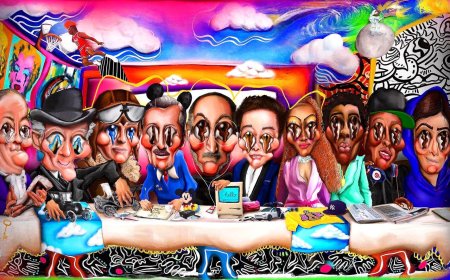Top 5 Technological Breakthroughs of the 21st Century
Discover the top 5 technological breakthroughs of the 21st century that have transformed industries and daily life. Explore innovations shaping the future of technology."

The 21st century has seen a wave of transformative technological breakthroughs that have revolutionized industries, improved human life, and reshaped our relationship with the environment. From groundbreaking advancements in computing to life-saving medical innovations, these developments have not only changed the way we live but have also paved the way for an exciting future. Here are the top 5 technological breakthroughs of the 21st century:
Introduction
The rapid pace of technological innovation in the 21st century has brought about extraordinary changes in every aspect of society. With each advancement, we have experienced more connected, efficient, and sustainable ways of living. From advancements in computing to cutting-edge health technologies, these breakthroughs have created a lasting impact. Let’s explore the top five technological milestones that have defined this century.
1. The Rise of Smartphones and Mobile Computing
Year: 2007 (Introduction of the iPhone)
Inventor: Steve Jobs, Apple Inc.
Country: United States
The launch of the iPhone in 2007 marked the dawn of the mobile computing era. Smartphones revolutionized how we communicate, access information, and interact with the world. Combining mobile phones with internet connectivity, touchscreens, and a range of apps, smartphones have become essential tools for daily life.
Impact:
- Human Life: Smartphones have improved connectivity, access to information, and productivity. They've empowered individuals to learn, work, and communicate at the touch of a button.
- Environment: Smartphones have influenced the shift toward digital platforms, reducing paper waste, and enabling smart solutions for managing resources.
2. Advancements in Artificial Intelligence and Machine Learning
Year: 2000s–Present (Ongoing development)
Key Figures: Geoffrey Hinton, Yann LeCun, and Yoshua Bengio
Country: Global (Notable contributions from Canada, the U.S., and the UK)
Artificial intelligence (AI) and machine learning (ML) have made leaps in the 21st century. AI, powered by deep learning algorithms, has reached unprecedented levels of sophistication. Applications range from voice assistants like Siri and Alexa to autonomous vehicles and medical diagnostics.
Impact:
- Human Life: AI improves productivity, enhances customer experiences, and aids in medical advancements like early disease detection.
- Environment: AI is used in smart energy systems to optimize power usage and improve the efficiency of renewable energy grids.
3. CRISPR Gene Editing
Year: 2012
Inventors: Jennifer Doudna and Emmanuelle Charpentier
Country: United States and France
CRISPR, a revolutionary gene-editing technology, enables scientists to precisely alter DNA. This breakthrough has the potential to cure genetic disorders, enhance agricultural production, and even combat infectious diseases. In 2012, Doudna and Charpentier’s discovery of CRISPR-Cas9 technology changed the course of genetic research.
Impact:
- Human Life: CRISPR allows for the possibility of curing inherited genetic diseases like sickle cell anemia and cystic fibrosis.
- Environment: Gene-editing applications in agriculture can lead to more resilient crops, helping address food security challenges caused by climate change.
4. The Advent of 3D Printing
Year: 2000s–Present (Ongoing development)
Inventors: Charles Hull (Patented first 3D printer in 1986)
Country: United States
3D printing, also known as additive manufacturing, has disrupted industries such as healthcare, aerospace, and automotive. This technology allows for the creation of objects layer by layer from digital models, leading to customized solutions in medicine, manufacturing, and even food production.
Impact:
- Human Life: In medicine, 3D printing enables the production of personalized prosthetics, implants, and organ models, improving patient outcomes.
- Environment: 3D printing reduces waste in manufacturing by using only the materials necessary to create a product. It also enables localized production, reducing the carbon footprint associated with transportation.
5. Renewable Energy Technologies
Year: 2000s–Present (Ongoing development)
Key Technologies: Solar panels, wind turbines, and battery storage
Country: Global
The 21st century has seen incredible strides in renewable energy technologies. Solar power, wind energy, and advanced battery storage have become increasingly efficient and cost-effective. These technologies are central to the global shift towards sustainable energy systems that reduce reliance on fossil fuels.
Impact:
- Human Life: Renewable energy technologies reduce the cost of energy, promote energy independence, and combat climate change.
- Environment: Solar and wind power produce little to no greenhouse gas emissions, contributing significantly to the reduction of global carbon footprints.
Key Facts and Statistics
|
Technology |
Year |
Impact on Human Life |
Impact on the Environment |
|
Smartphones and Mobile Computing |
2007 |
Enhanced connectivity, improved access to information |
Digital solutions reduce paper usage |
|
AI and Machine Learning |
2000s–Present |
Improved healthcare, autonomous systems, productivity |
Smart energy systems optimize energy usage |
|
CRISPR Gene Editing |
2012 |
Cures genetic diseases, enhances agriculture |
Gene-edited crops reduce pesticide use |
|
3D Printing |
2000s–Present |
Personalized prosthetics, medical models |
Reduces waste in manufacturing, localized production |
|
Renewable Energy Technologies |
2000s–Present |
Provides clean energy, reduces dependency on fossil fuels |
Reduces carbon emissions, combats climate change |
FAQs
What are the technological advancements in the 21st century?
Key advancements include smartphones, AI, CRISPR gene editing, 3D printing, and renewable energy technologies. Each of these has dramatically impacted various sectors, from healthcare to manufacturing and energy production.
What is the most important breakthrough of the 21st century?
While all these breakthroughs are significant, artificial intelligence (AI) is arguably the most impactful. AI is transforming industries, from healthcare to transportation, and is expected to continue shaping the future of innovation.
What is one of the most powerful technologies of the 21st century?
AI and machine learning are among the most powerful technologies. They have applications in autonomous vehicles, personalized medicine, and data analytics, transforming how we approach problem-solving and decision-making.
What are the 10 greatest scientific discoveries and inventions of the 21st century?
Some notable discoveries include CRISPR gene editing, AI, the Higgs boson discovery, quantum computing, and advancements in renewable energy technologies.
What are the greatest achievements of the 21st century?
The 21st century has seen monumental achievements such as the development of the iPhone, AI advancements, space exploration milestones, and breakthroughs in medicine and genetic engineering.
What are 3 technological advances that have changed our world?
Smartphones, AI, and renewable energy technologies are three major advances that have reshaped the world.
What are the emerging technologies of the 21st century?
Emerging technologies include quantum computing, advanced robotics, blockchain, and 5G wireless technology.
What are some of the new technologies being used in the 21st century that are once again transforming the US system of policing?
Technologies such as body cameras, AI-based facial recognition, and predictive policing tools are transforming law enforcement practices.
What is the latest technological advancement today?
Some of the latest advancements include quantum computing, advanced AI, and innovations in biotechnology.
What is the greatest advance in modern technology?
AI is often considered the greatest advance, as it is influencing virtually every industry and everyday life.
Conclusion
The 21st century has brought about numerous technological breakthroughs that have dramatically reshaped human life and the environment. From smartphones and AI to CRISPR gene editing and renewable energy, these innovations are driving the future of healthcare, energy, manufacturing, and more. As technology continues to evolve, we can expect even more groundbreaking advancements in the years to come.







































